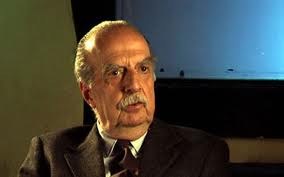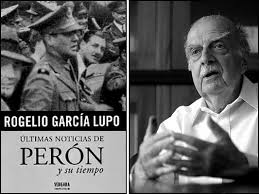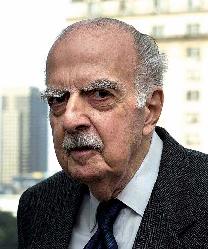DESAPARECIERON CRÓNICAS PERIODÍSTICAS DE GARCIA MÁRQUEZ (1959-60) EN PRENSA LATINA.
La obra periodística que Gabriel García Márquez escribió y publicó de 1959 a 1960 en Prensa Latina -la agencia informativa de la revolución cubana, que el escritor colombiano cofundó- terminó destruida “bajo sospecha ideológica” por el Gobierno de Fidel Castro.
La revelación ha salido a luz este lunes por boca de Rogelio García Lupo, de 82 años y el más afamado periodista argentino vivo de investigación. García Lupo fue compañero de Gabo en Prensa Latina, ideada por Ernesto Che Guevara como voz de la revolución e integrada, además, por otros dos argentinos, Jorge Masetti y Rodolfo Walsh.
Tanto el Che como Masetti y Walsh pasarían aquella etapa y, años más tarde, morirían combatiendo en otras experiencias guerrilleras latinoamericanas que pretendieron emular sin éxito a la revolución cubana en La Higuera (Bolivia), Salta (Argentina) y Buenos Aires (Argentina), respectivamente.
Presiones al núcleo argentino
García Lupo ha recordado al diario porteño ‘Clarín’ que fue llamado a trabajar en Prensa Latina y que llegó a La Habana en agosto de 1959, cuando la revolución ya había vencido a la dictadura de Fulgencio Batista y aún no se había proclamado comunista. García Márquez era corresponsal, primero en Bogotá y luego en Nueva York.
“Masetti había estado en Sierra Maestra en el 1958 -le había hecho la primera gran entrevista a Fidel ahí- y había traído una serie de certezas. Él nos decía: ‘(Los castristas) No son comunistas, quieren hacer una cosa democrática, son nacionalistas, antiimperialistas'”, ha evocado García Lupo.
Según el relato del octogenario, los periodistas que trabajaban en aquella redacción en la capital de la isla “ideológicamente no éramos más que eso”, es decir, antiimperialistas. ¡No éramos nada comunistas! Estábamos estancados ideológicamente, según decían los comunistas”.
Hacia finales de 1960, un sector del gobierno empezó a tildar a Guevara de troskista. “Era un estigma, le estaban serruchando el piso. El Che era difícil de serruchar, pero Masetti era más fácil. Y si lo serruchaban a él, caía yo, caía Walsh, caía Heberto Padilla. Me fui -ha sostenido- porque había una enorme presión para que el grupo de argentinos perdiera poder”.
Comunista no, pero sí amigo de Fidel
Con la proclamación en 1961 del Gobierno de Cuba como régimen socialista aliado a la URSS “los comunistas cubanos -explicó- ocuparon posiciones y quienes pasaron a dirigir la agencia Prensa Latina eran del más cerrado estalinismo”.
Y entonces, ha proseguido el veterano profesional, “el trabajo de Gabo, nuestro trabajo, todo el periodismo de los años 59 y 60 fue destruido. Ese material no está en ningún lado”. Tan es así, ha acotado García Lupo, que “muchos años después, Gabo reunió sus escritos de prensa y no hay entre ellos un solo despacho de la agencia. Fueron destruidos”.
“Cuando la agencia cumplió 40 ó 50 años nos invitaron a una fiesta de conmemoración. Gabo me dijo: ‘No voy a esa fiesta mientras no me den una explicación de por qué destruyeron mis crónicas'”, ha revelado.
Para García Lupo su recién fallecido colega nunca mantuvo vinculación con los comunistas cubanos, sino una relación personal con Fidel Castro. Por eso, a su juicio, no firmó la petición de liberación en 1971 del entonces encarcelado poeta Heberto Padilla. “Fue un sacrificio por la unidad ideológica de la revolución”, ha dicho.
Al autor de ‘Cien años de soledad’ no le convencía el comunismo soviético. “Había hecho un viaje para una revista a los países del Este y decía: ‘¿Sabes una cosa? Lo que no puedo olvidar del mundo socialista es el dentífrico. ¿Dentífrico? Duro como el cemento’. Nos divertíamos con sus relatos, siempre fue un gran narrador oral”, ha concluido.
ElMundo/Juan Ignacio Irigaray, Argentina/InternetPhotos/thecubanhistory.com
DESAPARECIERON CRONICAS PERIODISTICAS de Garcia Márquez (1959-60) en Prensa Latina.
The Cuban History, Hollywood.
Arnoldo Varona, Editor
Valle de Viñales, Cuba.
Foto por Andres Ito with Soledad Miravanti. (Cuba en Fotos).

GARCIA MARQUEZ JOURNALIST CHRONICLES DISAPPEARED (1959-60) at Prensa Latina.
journalistic work that Gabriel García Márquez wrote and published from 1959 to 1960 , the Prensa Latina news agency of the Cuban revolution , who co-founded the Colombian writer – ended destroyed “under ideological suspicion” by the government of Fidel Castro.
The revelation has come to light on Monday by Rogelio García Lupo mouth , 82 and the most famous Argentine journalist vivo research. Garcia buddy Gabo Lupo was in Prensa Latina, designed by Ernesto Che Guevara as the voice of the revolution and also comprises two other Argentines , Jorge Masetti and Rodolfo Walsh.
Both Che and Walsh would like Masetti that stage and , years later , would die fighting in other Latin American guerrilla experiences that tried unsuccessfully to emulate the Cuban Revolution in La Higuera ( Bolivia ), Salta ( Argentina ) and Buenos Aires ( Argentina ) , respectively .
Pressures Argentine core
García Lupo reminded the Buenos Aires daily Clarín ‘ was called to work in Prensa Latina and arrived in Havana in August 1959 , when the revolution had already defeated the dictatorship of Fulgencio Batista and had not yet been proclaimed communist . García Márquez was a correspondent , first in Bogotá and then in New York.
” Masetti had been in Sierra Maestra in 1958 , he had made the first major interview with Fidel there, and brought a number of certainties He told us: . ‘ ( The Castro ) They are not communists, want to make a democratic thing , are nationalist , anti-imperialist , ‘” Garcia Lupo has evoked .
According to the account of the octogenarian , journalists working in that wording in the capital of the island ” ideologically we were more than that ” , ie , anti-imperialist . We were all communists! We were stuck ideologically , they said the Communists . ”
Towards the end of 1960 , a government sector began to tick Trotskyist Guevara . “It was a stigma , we were sawing the floor. Che was difficult to saw , but Masetti was easier. And if I sawed it, dropped it , fell Walsh , fell Heberto Padilla. I went -ha sustained – because there was a enormous pressure on the Argentine group lost power. ”
Not Communist , but a friend of Fidel
With the proclamation in 1961 of the Government of Cuba as a socialist regime allied to the USSR ” communist Cuban – explained occupied positions and who came to lead the Prensa Latina news agency were the most closed Stalinism ” .
And then continued professional veteran, ” Gabo ‘s work , our work, all of journalism of 59 and 60 years was destroyed. Such material is not on any side.” So much so , has bounded García Lupo, “Many years later, his writings met Gabo press and no one including the agency office . They were destroyed.”
. ” When the agency turned 40 or 50 years were invited to a feast of commemoration Gabo said, ‘ I’m not going to that party as I did not give an explanation of why they destroyed my chronic ‘ ,” he revealed.
For García Lupo his recently deceased colleague never maintained links with the Cuban communists , but a personal relationship with Fidel Castro. Therefore, in his view, did not sign the petition for release in 1971 of the then imprisoned Padilla events . “It was a sacrifice for the ideological unity of the revolution,” he said.
The author of “One Hundred Years of Solitude ‘ not convinced Soviet communism . “I had taken a trip to a magazine Eastern countries and say, ‘ Guess what I just can not forget the socialist world is toothpaste ? Toothpaste Hard as cement? . ? ‘ We had fun with his stories , always. was a great storyteller , ” he concluded.
ELMundo/ Juan Ignacio Irigaray , Argentina / InternetPhotos / thecubanhistory.com
DISAPPEARED JOURNALISTIC Chronicles of Garcia Marquez (1959-60) en Prensa Latina.
The Cuban History , Hollywood.
Arnoldo Varona , Editor





